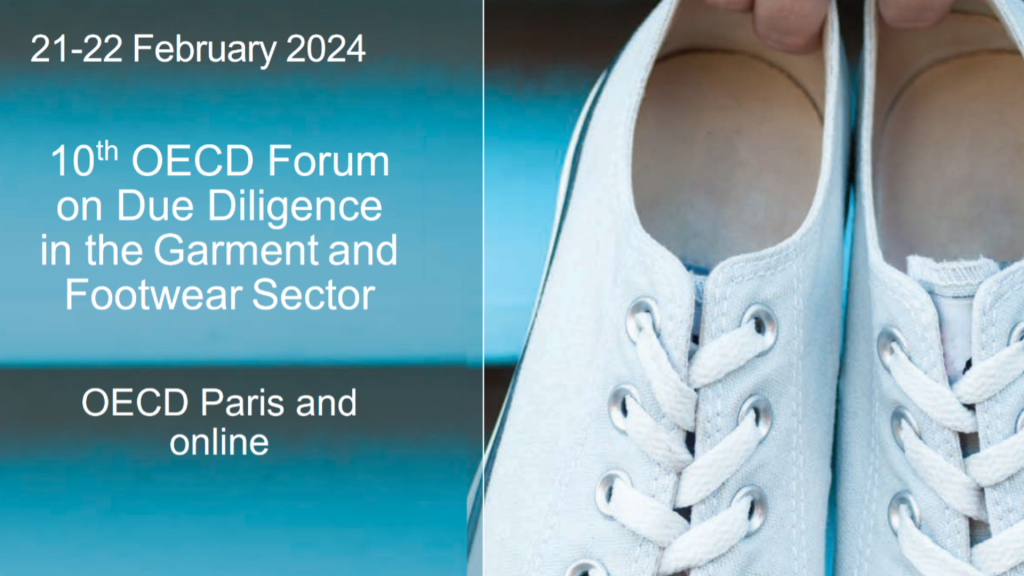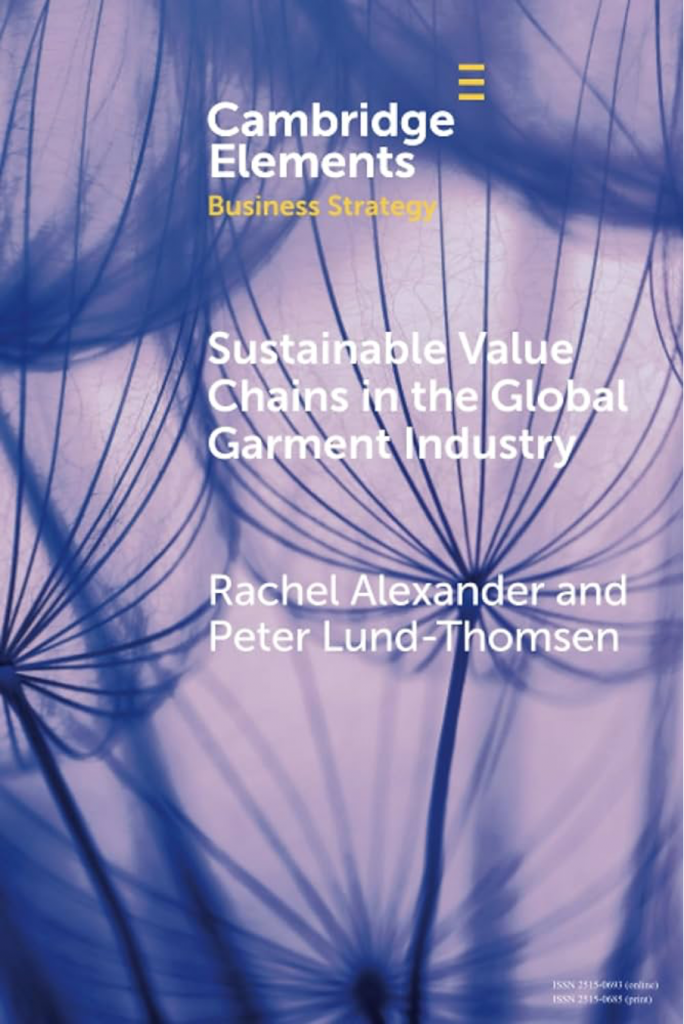By Rachel Alexander

Do compliance audits incentivise factories to conceal problematic practices? Could a focus on identifying risks encourage brands to collaborate more closely with their factories, fostering collaborative upgrading processes? These were some of the questions discussed by attendees at the OECD Forum on Due Diligence in the Garment and Footwear Sector, which took place in Paris from 19–23 February. During the conference, government representatives, unions, civil society groups and large companies like PVH (owners of Tommy Hilfiger and Calvin Klein, among other brands) and Disney met to discuss topics including climate adaptation, binding company-union agreements, and chemical management.
This yearly event is a forum to promote the OECD Guidelines for Multinational Enterprises and the OECD Due Diligence Guidance for Responsible Supply Chains in the Garment and Footwear Sector. These guidelines and related guidance are based on the idea that multinational enterprises (MNEs) should carry out risk-based due diligence in relation to all of their operations, including their supply chains and products’ post-use lives. The OECD has outlined 12 key areas of risk in the garment and footwear sector as (1) child labour; (2) sexual harassment and sexual and gender-based violence in the workplace; (3) forced labour; (4) working time; (5) occupational health and safety; (6) anti-worker policies or practices that impede trade unions and collective bargaining; (7) wages; (8) hazardous chemicals; (9) water; (10) greenhouse gas emissions; (11) bribery and corruption; and (12) responsible sourcing from homeworkers. These risks are most acute in the Global South where garment and footwear production practices typically take place. Mitigating these risks is crucial for the sustainability of the industry.
The due diligence approach promoted by the OECD moves beyond the compliance approach that has often been relied upon by brands and retailers. The compliance approach is epitomised by creating supplier codes of conduct and supplier auditing systems. While compliance systems have been associated with some improvements, they have often been criticised as being ineffective. The risk-based approach, in contrast, involves brands and retailers asking where their biggest risks are and how they can best be mitigated. For example, does auditing a supplier – with a possible outcome being that the supplier loses their buyers -incentivise the suppliers to hide problematic practices? In contrast, could building dialogue with suppliers foster collaboration and help bring potential risks to light?

The forum covered diverse emerging topics related to sustainable fashion. These included circularity and the importance of effective grievance mechanisms. Another key issue was the development of new legislation. An overarching concern for many participants was the delay in the expected approval of the EU’s Corporate Sustainability Due Diligence Directive. This directive, which has been under development for years, would introduce harmonised due diligence legislation across Europe.
While MNEs play a large role in shaping the sustainability of the garment and footwear sector, which can be enhanced through effective due diligence practices, many other actors are also playing important and diverse roles. Together with CBDS’s Peter Lund-Thomsen, I have recently published a short book focused on innovation for sustainability in garment value chains. We highlight the diversity of initiatives that are being developed to address sustainability challenges. These include activities that are being carried out by MNEs, in addition to a wide range of new practices being developed by smaller actors. One example is Bolt Threads, which has created a variety of new materials, including synthetic leather derived from fungus. Other innovative businesses are creating new models of consumption, such as the Dutch company Circos that leases baby clothing to new parents.
Events, like the OECD Forum on Due Diligence in the Garment and Footwear Sector are crucial to foster the dialogues that are necessary to address the complex challenges facing the industry. As policymakers and companies continue to innovate and learn from best practices, in the coming years the industry will grow and develop. At this critical juncture, it is important to learn from experiments which provide insights into more sustainable ways of operating.
Rachel Alexander is a postdoctoral researcher at the Centre for Business and Development Studies at Copenhagen Business School.
